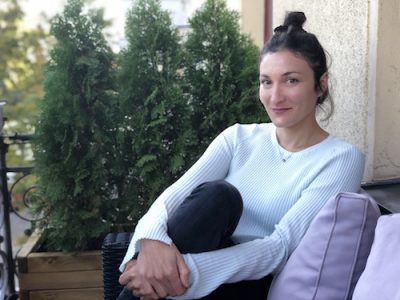Paul Giamatti on Finding Redemption in the Most Human “Black Mirror” Season 7 Episode
Seven seasons in, Charlie Brooker’s anthology series Black Mirror still gets under your skin. Usually, the load is heavy and dark, with characters’ lives driven to unambiguously worse places by technology we don’t yet have, but it feels like it may come frighteningly soon. But there’s one episode in this most recent season, Eulogy, starring Paul Giamatti, that stays in your mind for its emotional rewiring of one lonely man’s core memories. The technology leads to something different—tenderness, a shot at discovery, and at least an ambiguous sense of redemption.
Phillip is a prickly older guy leading a solitary existence until he’s contacted by a company called Eulogy, which sends him a kit to plumb the depths of his memories of a former girlfriend, Carol (Hazel Monaghan). Phillip is closed off, at first, insistent that he can barely remember Carol, yet still willing to follow the Guide’s (Patsy Ferran) prompts. Eulogy’s technology rests on transporting users into old still photos of themselves and the deceased, but for Phillip, there’s a hitch. He unearths a box of images of himself with Carol, and his ex-girlfriend’s face is scratched out or scribbled over in every one. Guided by Eulogy’s representative, Phillip emerges from his emotional lockbox to reveal why their relationship failed. It’s a pitiable moment, but also liberating—his honesty leads to an unexpected discovery that’s both devastating and allows Phillip to finally understand a pivotal moment in his former life with Carol. In this case, the truth really does set Phillip free.
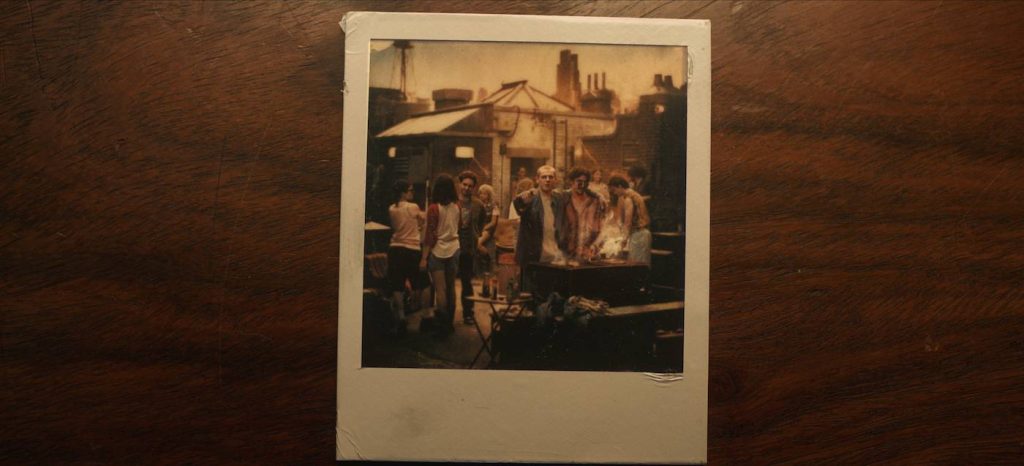
The terrific range of the character’s experience over the course of his session with the Guide is made possible by Giamatti, who has received glowing reviews for the nuanced, sympathetic way he portrays Phillip’s peevish skepticism that transforms into a radical epiphany. We had the chance to speak with the actor about his reaction to being offered a Black Mirror script, his experience spending so much time alone on screen, and his own interpretation of Phillip’s unusual, technology-driven journey.
When you got the script for Eulogy, what were your initial thoughts?
I was very excited to get a Black Mirror script, and I didn’t know what it was going to be like. I kept waiting for it to turn really menacing and terrifying, and it didn’t. It was very moving, and I thought the stuff about the technology was interesting, whether it was a good thing or not. It was like a play. It was really written. I could see everything, I felt everything just on one read of it. The emotions are weird and messy and complicated and irrational. I just thought it was really great.
When you have to chart such a complex emotional journey for a character, how do you start?
If the script is that good, if I feel it as quickly as I did with this thing, which is generally when I know I want to do something, it will tell me where to go and what to do. I try to follow it and not push it or undersell it. It’s like a temperature chart. I follow where it’s going to take me and not get in the way of it.
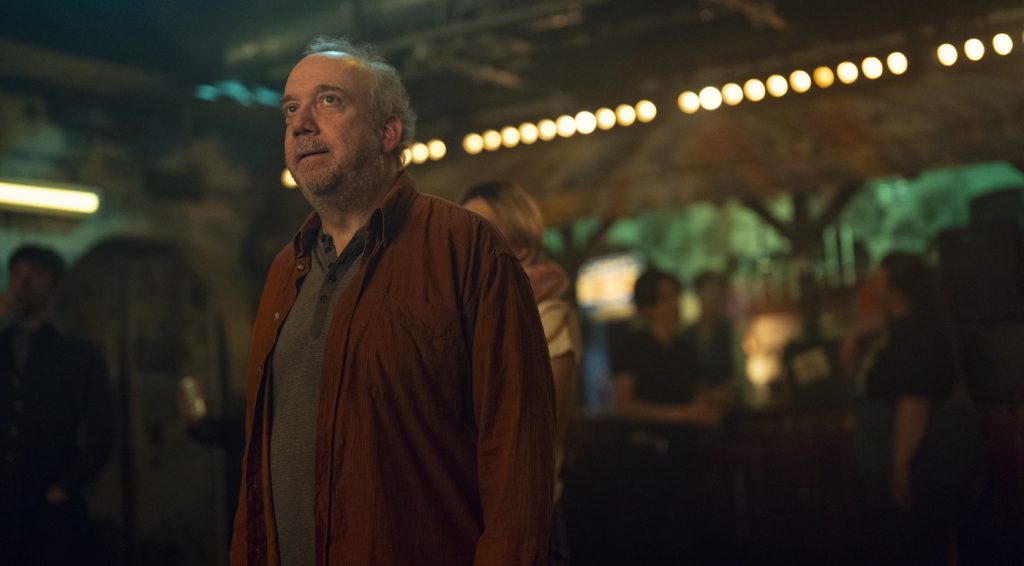
How was your experience spending so much time alone on camera?
When I read it, I didn’t quite take in how much of it was me alone, actually. When we started filming it, I realized, at a certain point, that this is going to be only me. And a lot of it is only me, which then proved not to be as daunting. He’s talking to himself, but he’s not. It was a cool challenge. But I wasn’t alone because Patsy Ferran was in the room with me, and she’s so great. I never felt alone. It was like I was in a two-person play, and then it was just fun.
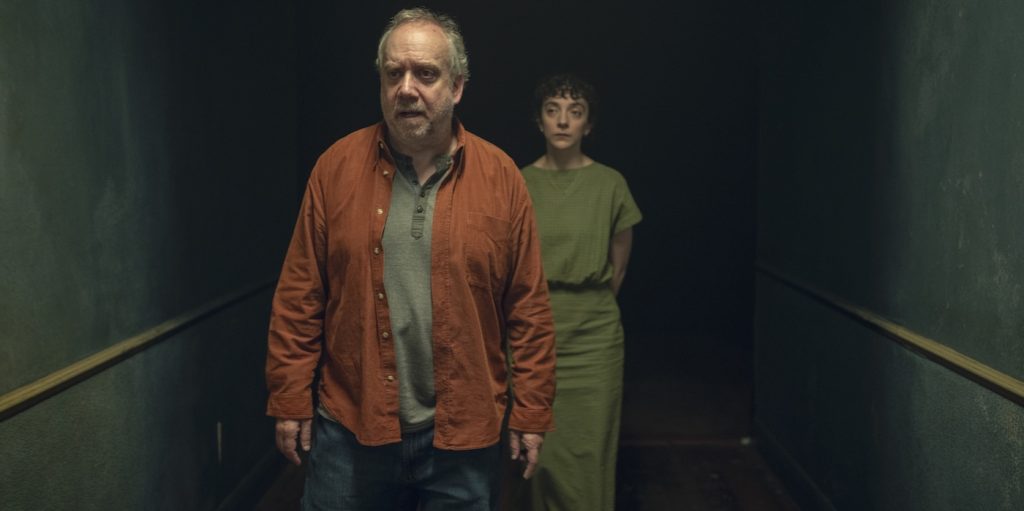
What did you want the audience to feel, watching Philip have an epiphany at the end of the episode?
It’s devastating to him, it’s terrible, but it’s also what allows him to clear out all the messiness and see things as they actually were, to re-find the woman as she truly was and have that memory now to keep of her, while also knowing that it’s all gone. It’s a tough thing. I don’t know what the audience is going to feel about that. I just know what the guy is feeling—that he’s overjoyed to see her again. It’s all he wanted to do. To really see her, what she really was like. Maybe it’s a romanticized thing he sees at the end, but that’s a good thing, too. He finds something positive, he re-finds the good thing about it. Maybe that’s what you want people to [take away]—find the silver lining!
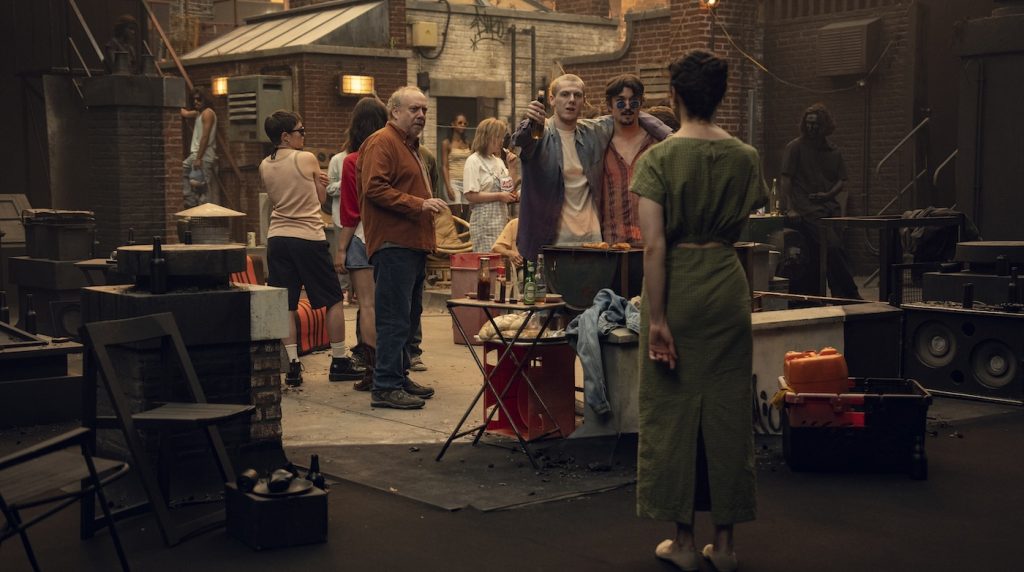
What did you think of the technology, in that case?
When I first read it, I thought it was coercive, creepy, seductive, and weird. I still kind of felt a little bit of that. When we were shooting, I felt a little more ambivalent. Then, when I saw the finished product, I thought, Oh, it’s much more positive. It’s so interesting to see it all play out and think, no, it seems like a good thing, now. Everybody else had a thing on their head at the end, except for him. He doesn’t need that, he’s got ownership of everything he remembers about her.
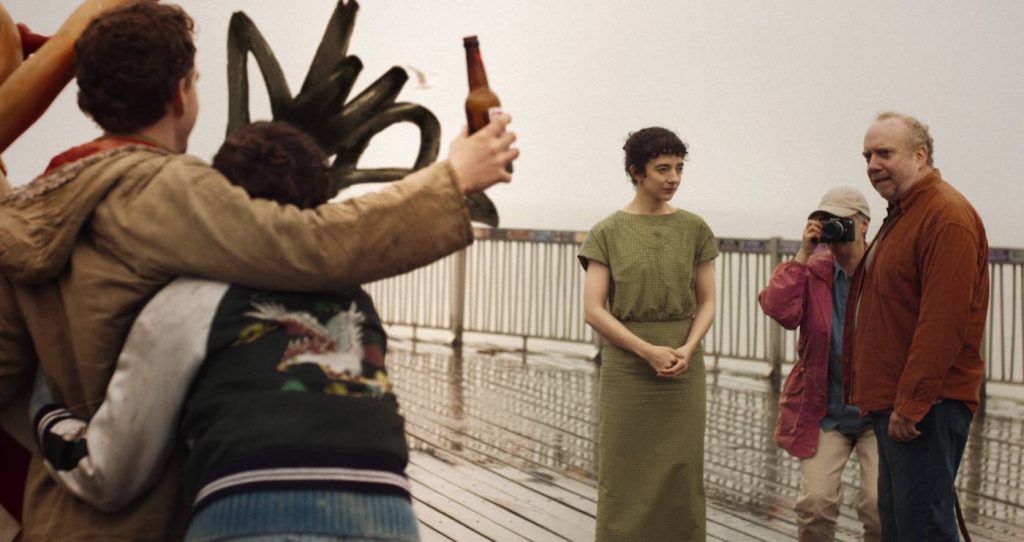
He’s one character who breaks free, not just in this episode, but across Black Mirror in general.
That’s true, most people are trapped, doomed, and destroyed. But he’s actually liberated by the technology.
Black Mirror episodes, in a non-preachy way, usually offer some kind of lesson on how to be human. If there’s one thing you want viewers to take away from what Phillip learns, what would it be?
That’s a good point, it’s much more about the humanity than it is about the technology, because all this stuff is as bad as the people who are in control of it. It’s what we were talking about—I suppose it’s finding some way to accept things and move on from things, and try to really see people for who they are. I don’t know, oftentimes, what people should take away from a thing, as long as they take something away.
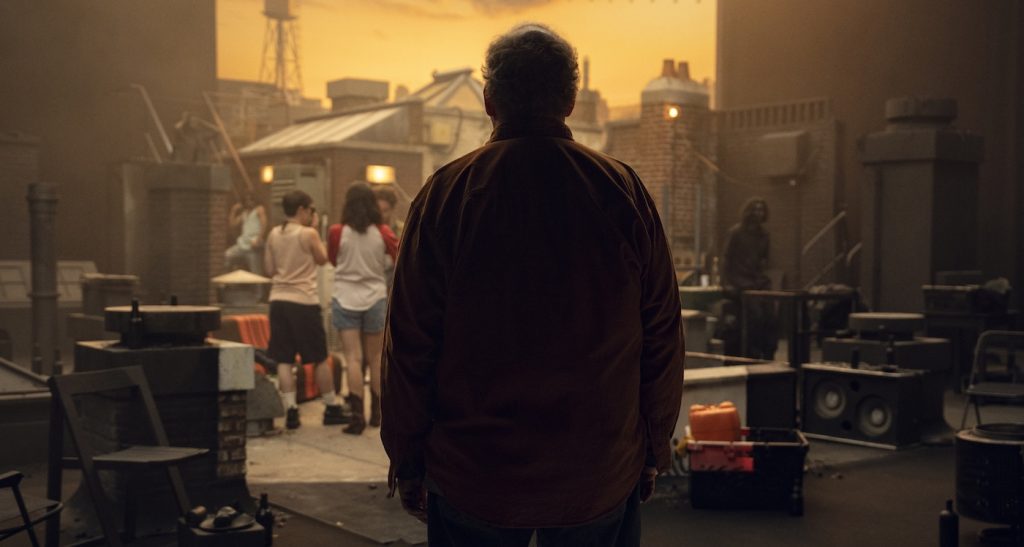
What’s it like going into a project that’s an anthology rather than a scripted series? Does that change your process?
I have huge respect for people who do anthology series. I think it’s really cool, great storytelling. I love it and wish there was more of it, but it’s hard to do. This was just like a little film. In some ways, it’s good that you don’t have to worry about it being a continuous series. It’s like you get this really neatly packaged, individual script. You feel really special. It’s like, ooh, I got my special Black Mirror episode, this is really cool. This is all ours. We didn’t have a whole lot of time. But I approach everything differently. Everything makes different demands.
The moment Phillip stops hiding seems to be when he reveals what happened to the photos of him and Carol. Was that also the moment of truth for you?
If I’m remembering it correctly, yes, it is. Some part of him realizes this is meaningful, so he needs to actually acknowledge what he did. In the moment when he says, I can’t do this anymore, and she asks, Do you want to stop, and he says no, in that area, things are starting to fill in. He sees some reason to do this. And he’s more honest with himself.
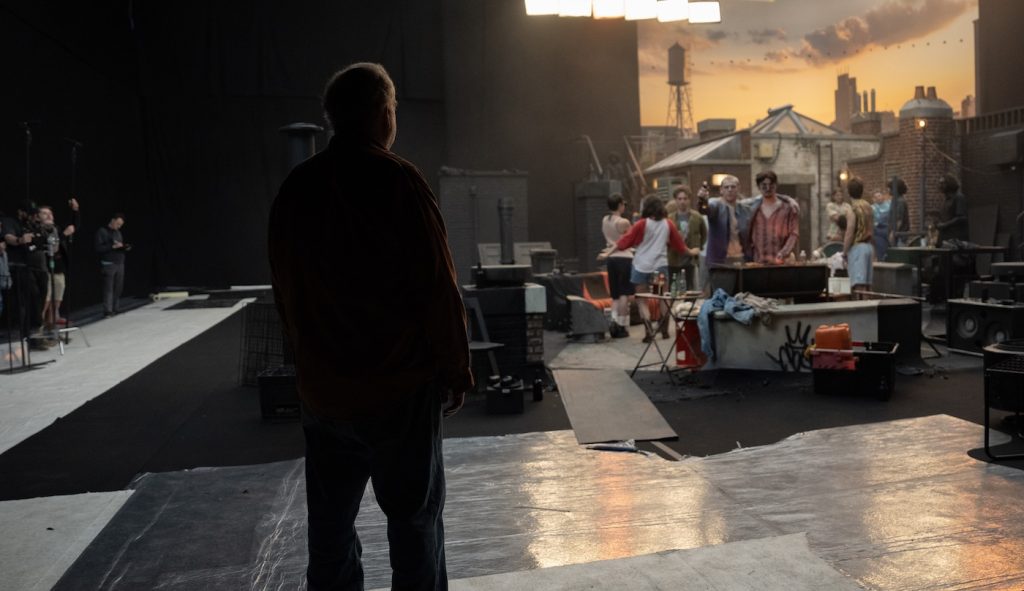
Did you like Phillip as a character?
I did, totally. I didn’t find him unlikable. I found him messy and weird. One of the things I thought was great, when I first read [the script], was he gets pissed off a bunch of times and then all of sudden he says, I’m sorry. There’s something human in that. They thought about cutting those early on. I said no, don’t cut those, that’s so great, that guilt and that person who’s like, I’m an asshole but I’m not an asshole. I thought that was really human, in a way, and I liked that detail about him. I don’t think he’s a bad guy. He’s just human.
Black Mirror season 7 is streaming on Netflix.
Featured image: Paul Giamatti. Credit: Nick Wall/Netflix


